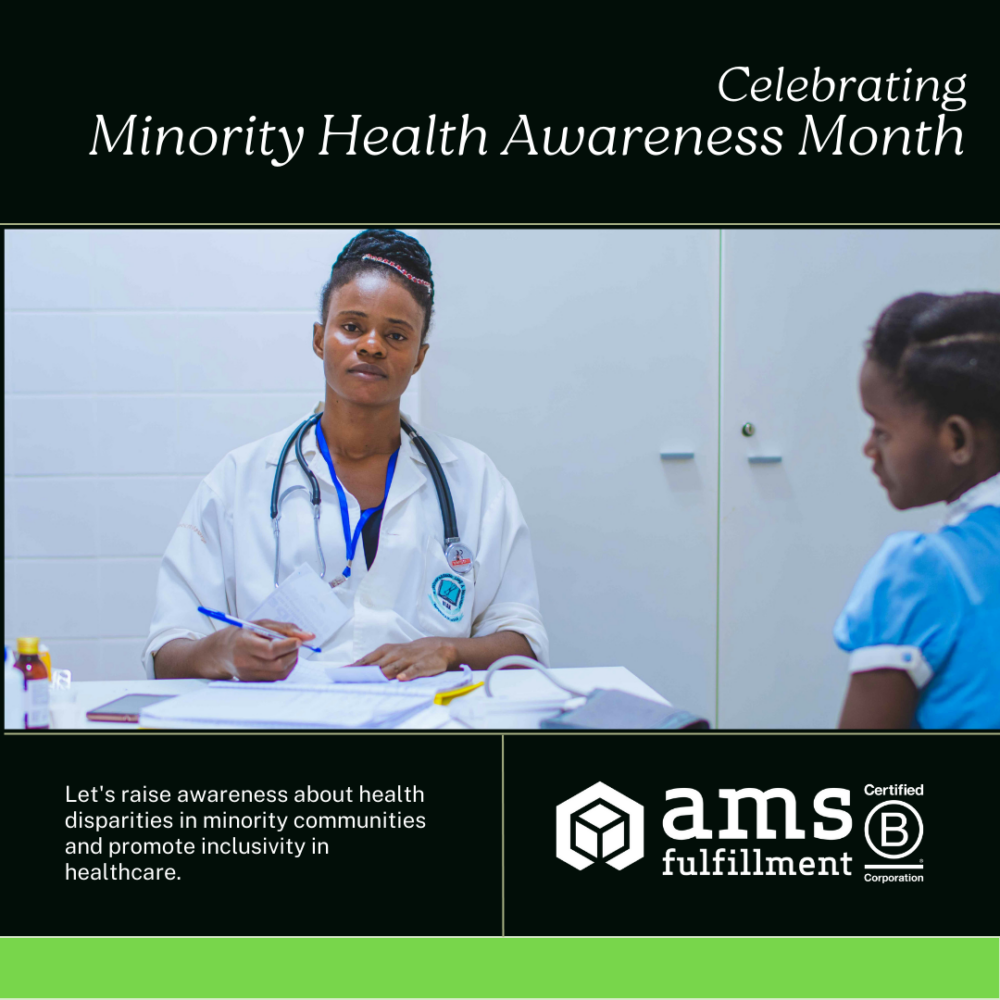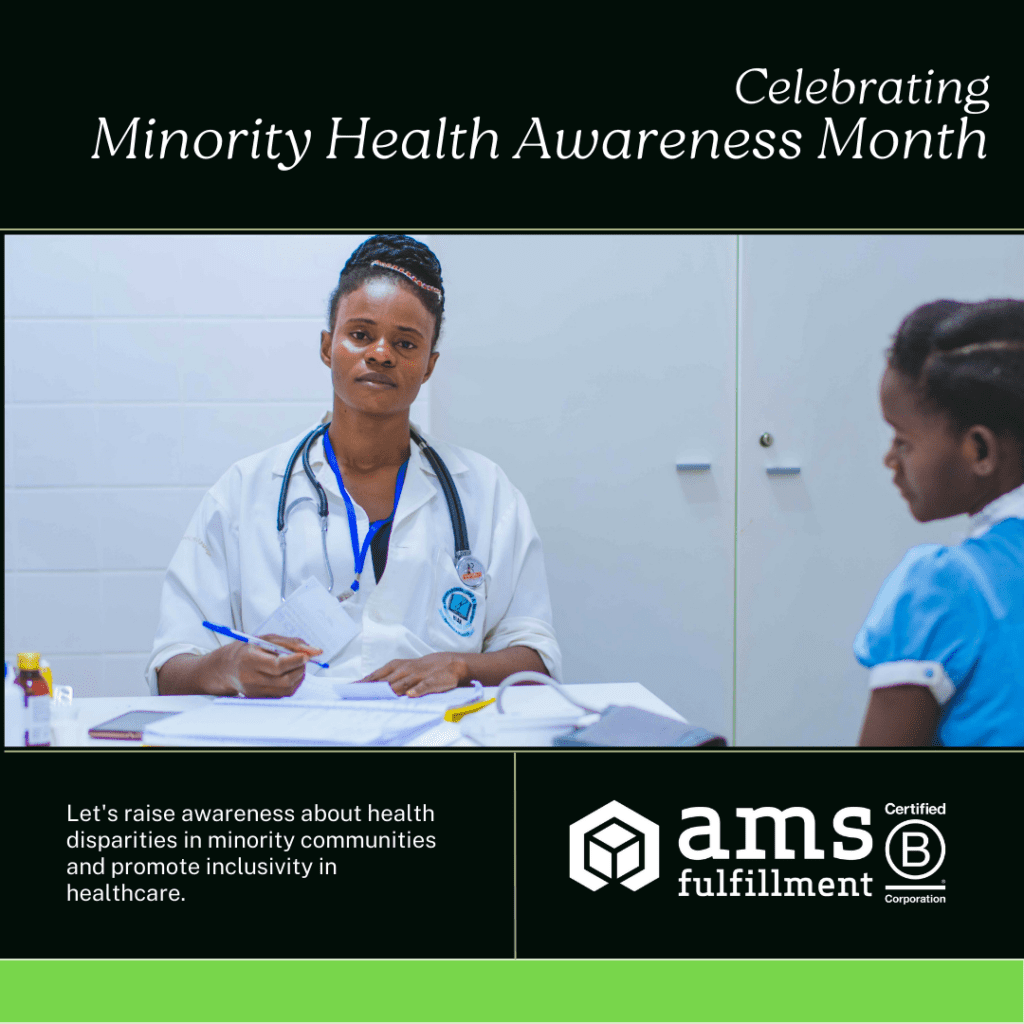 Among the commemorations in April is one that deserves significant attention – April is Minority Health Month. Throughout the US, racial minority groups experience higher rates of illness and death, with health conditions that include diabetes, hypertension, obesity, asthma and heart disease. Let’s talk about it.
Among the commemorations in April is one that deserves significant attention – April is Minority Health Month. Throughout the US, racial minority groups experience higher rates of illness and death, with health conditions that include diabetes, hypertension, obesity, asthma and heart disease. Let’s talk about it.
An article published at the Centers for Disease Control and Prevention (CDC) [LINK] attributes these disparities to racism, defining racism as follows:
“Racism is a system—consisting of structures, policies, practices, and norms—that assigns value and determines opportunity based on the way people look or the color of their skin. This results in conditions that unfairly advantage some and disadvantage others throughout society. Racism—both interpersonal and structural—negatively affects the mental and physical health of millions of people, preventing them from attaining their highest level of health, and consequently, affecting the health of our nation.”
The article points out that where one lives, learns, works, worships and plays has an impact on a range of social and economic benefits—such as housing, education, wealth, and employment.
A growing body of research shows that centuries of racism in this country have had a profound and negative impact on communities of color. The impact is pervasive and deeply embedded in our society. The article states, “These conditions—often referred to as social determinants of health—are key drivers of health inequities within communities of color, placing those within these populations at greater risk for poor health outcomes.”
The life expectancy of Black Americans is four years lower than that of White Americans. This is a sad reality. It is painful to ask… why is this sill woven into our culture? And we also ask… isn’t it about time racism comes to an end and we realize the beauty and worthiness of all human beings?
Quoting again from the CDC: “To build a healthier America for all, we must confront the systems and policies that have resulted in the generational injustice that has given rise to racial and ethnic health inequities. We at CDC want to lead in this effort—both in the work we do on behalf of the nation’s health and the work we do internally as an organization.”
We’re pleased to offer readers a video from the CDC [LINK] that is informative and worth watching.
Black Women, Pregnancy & Maternal Mortality
One area where very measurable disparities are found is covered in a National Library of Medicine [LINK] paper entitled: Addressing Black Maternal Morbidity and Mortality in the United States. Let’s begin with some statistics from the article:
“Black women are at least three times more likely to die due to a pregnancy-related cause when compared to White women. The estimated maternal mortality rate in 2019 was 20.1 and, in 2020, was 23.8 per 100,000 births which represents about 861 maternal deaths. For Black women, that rate is about 55.3 per 100,000 live births, representing an estimated 1800 maternal deaths, the highest amongst any racial group; this is a number that has continued to increase over the past few years.”
The author states that the problem is compounded by historical legacies of institutionalized racism and bias in medicine. Quoting from the paper:
“While each mortality or morbidity circumstance is different, the leading causal factors associated with maternal mortality and morbidity in the U.S. include hypertensive disorders of pregnancy, thrombotic pulmonary embolism, hemorrhage, infection, cardiovascular conditions, cardiomyopathy, and non-cardiovascular medical conditions.
“More recent studies have shown that social factors such as historical exposure to racial trauma, discrimination, and marginalization; systemic barriers such as systematic racism and implicit bias within the healthcare system; the possibility of being uninsured; reduced access to reproductive healthcare services; and socioeconomic factors also contribute to pregnancy complications for Black women and have to be given consideration.”
Legacies of the Past
The disparities that exist today are legacies of the past: transgenerational enslavement, Jim Crow segregation and terrorism, redlining, discrimination, mass incarceration and racism. The past has left an inheritance, and this is a painful reality for all Americans today. Upon hearing of these realities we ask… what can we do… how can we help?
If we look into the history, we will see harsh, horrible, heartbreaking stories including racism in healthcare. The author states that the history must be understood to dismantle racism in today’s healthcare systems and suggests policies that protect Black women. How is history understood? How are fair and just policies created? Certainly an avenue to understanding is learning. There is one month dedicated to Black History, which is eleven months too few. It goes without saying that ignorance of the past is a great mistake. Study of Black history leads to understanding, which leads to informed problem solving and intelligent policies.
There must be systemic changes in order to reduce Black maternal morbidity and mortality, and all health disparities. How are systemic changes made? There needs to be leadership with understanding of the issues. We are grateful to the CDC for its strong leadership and we encourage more of the same.
Businesses that prioritize fairness in hiring and promotions (JEDI) are doing what they can do to build a better world, and we are proud of AMS’ dedication to the highest B Corporation standards. We are also grieved by these disparities, and we encourage all businesses involved in healthcare to work at dismantling racism wherever it can be found.
Commemorative months are created to bring about awareness, even if awareness is painful and solutions are not easily found. We are grateful for all efforts toward eliminating racial disparities in healthcare and we encourage all efforts toward bringing about a just world.
** **
AMS Fulfillment is a Certified B Corporation, committed to putting People and Planet before Profit. We work to B the Change we wish to see in the world.




